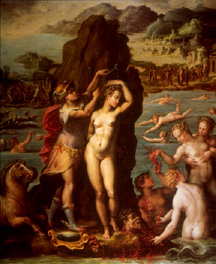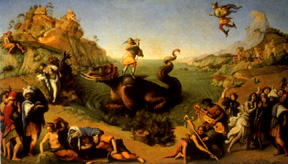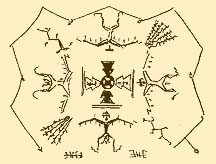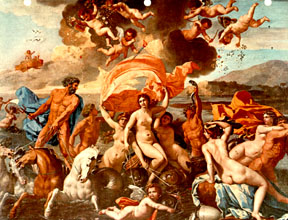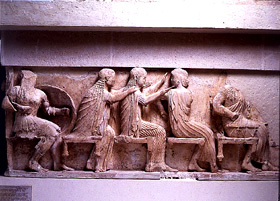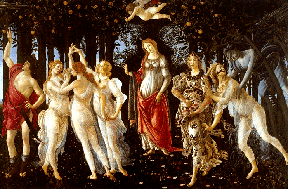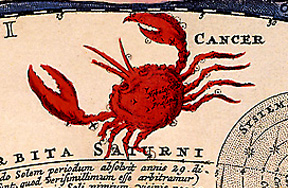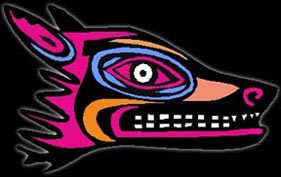Click on image for full size
Planet Art.
Related links:
Andromeda
In Greek mythology, Andromeda was the daughter of Cassiopeia and Cepheus, king of Ethiopia. Andromeda's mother claimed that they were more beautiful than the sea nymphs, the Nereids. The Nereids felt insulted by this and complained to the sea god Poseidon.Poseidon threatened to send a flood and a sea monster to destroy the kingdom of Ethiopia. The king consulted the oracle of Ammon who advised him to sacrifice his daughter. Andromeda, dressed only with few jewels, was chained to a sea-cliff. At this time, Perseus, a Greek hero, was traveling along the coast to the north. He noticed the beautiful naked woman chained to a rock and immediately fell in love with her.
Perseus offered to rescue Andromeda in return for her hand in marriage. Andromeda had already been promised to a man named Agenor. However, hoping to save their daughter from the approaching sea monster, Cepheus and Cassiopeia -in bad faith- consented to Perseus'request.
Perseus was a valiant warrior and possessed some powerful weapons. He used the head of the Gorgon Medusa, which had the capability to turn everything into stone. Perseus slew the monster and freed the young woman. On Andromeda's insistence, the wedding was then celebrated. Her parents, who had forgotten their promise to Perseus, informed Agenor of the wedding. He interrupted the ceremony with an armed party.
A violent fight took place, with Cepheus ad Cassiopeia siding with Agenor. Perseus prevailed, using the Gorgon's head to petrify his opponents. Finally, Andromeda left her country to live with Perseus who later became the king of Tiryns and Mycenae. The goddess Athena placed the figure of Andromeda among the stars as a reward for keeping her parents'promise.


